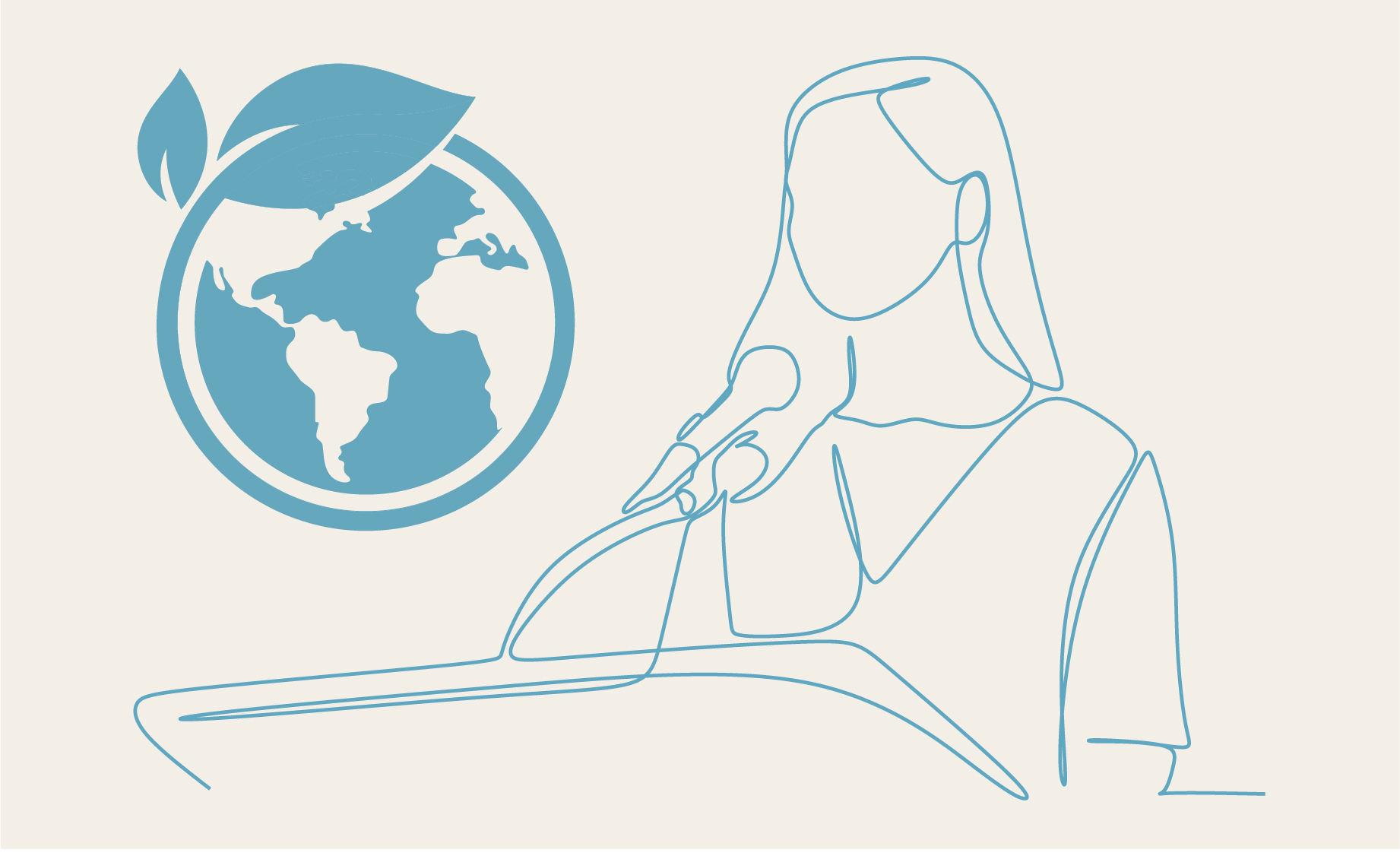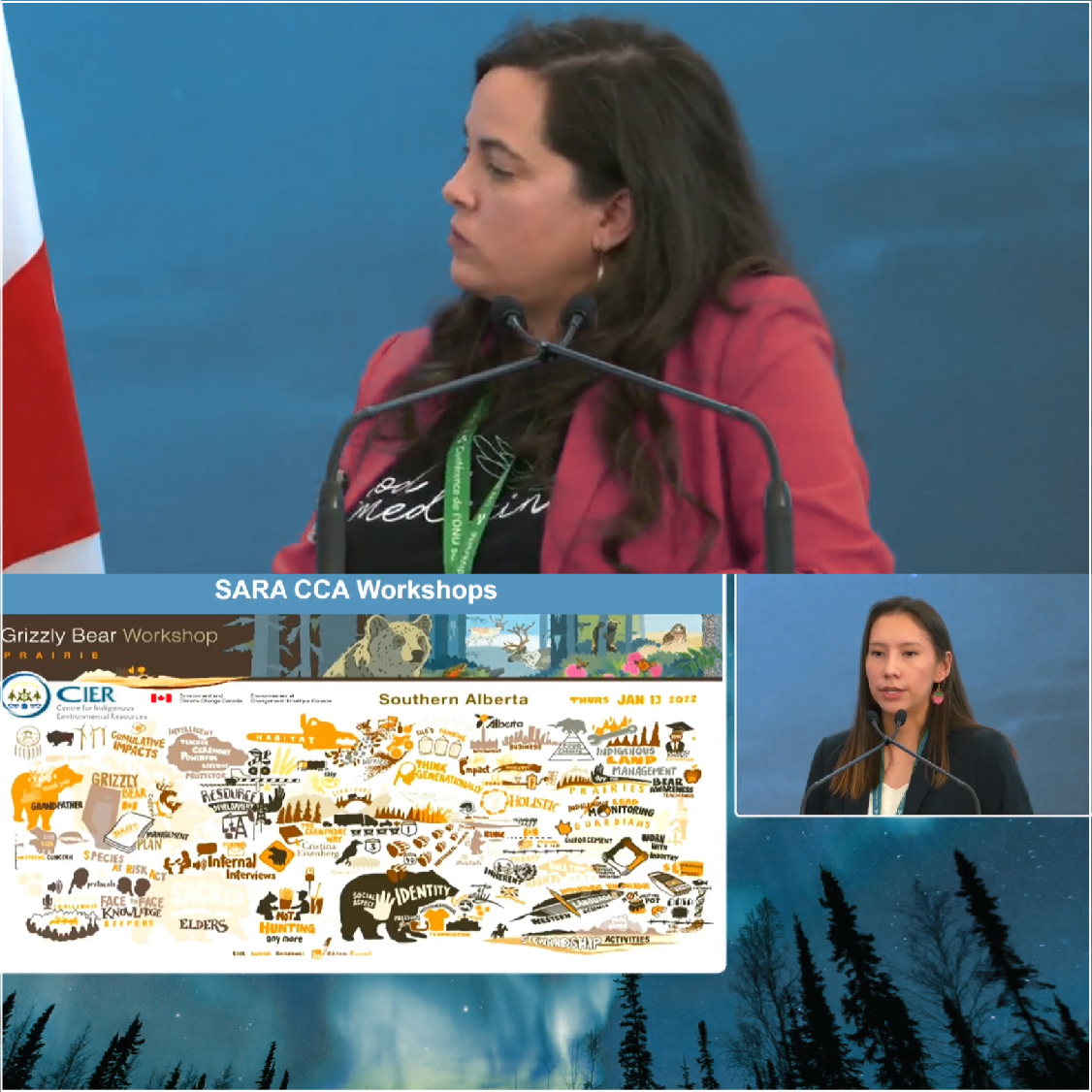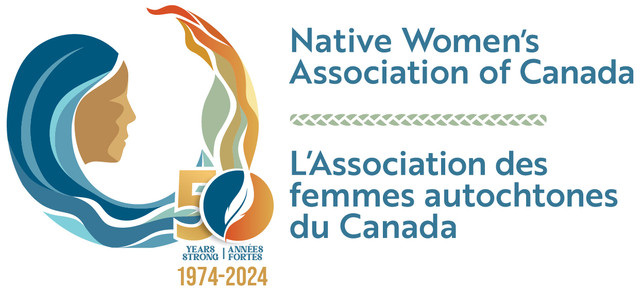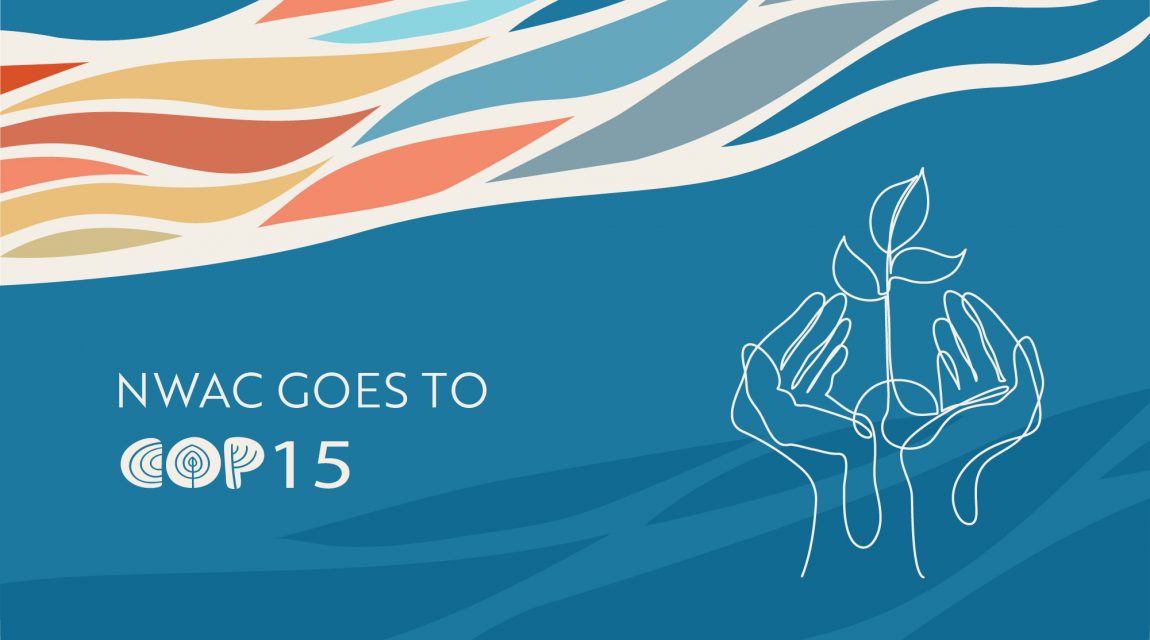The Conference of Parties 15 to the United Nations Convention on Biological Diversity (CBD) (COP 15) was held in Montreal December 7–19, 2022. Funded by its Conserving Nature Biodiversity project, NWAC hosted a side event as part of the Canadian Pavilion. The event was facilitated by Environment and Climate Change Canada (ECCC).
At the global level, NWAC’s contribution to COP 15 was located within the wider global context of targets 21 and 22 of the post-2020 global biodiversity framework and the AICHI Global Biodiversity goals and targets, particularly Goal E and Target 18.

Target 18 states:
By 2020, the traditional knowledge, innovations, and practices of indigenous and local communities relevant for the conservation and sustainable use of biodiversity, and their customary use of biological resources, are respected, subject to national legislation and relevant international obligations, and fully integrated and reflected in the implementation of the convention with the full and effective participation of indigenous and local communities, at all relevant levels.
At the Canadian federal biodiversity policy level, NWAC’s participation was guided by some of the challenges highlighted in the Summary of Canada’s 6th National Report to the Convention on Biological Diversity in achieving Targets 12 and 15 as outlined in the 2020 Biodiversity Goals and Targets for Canada.
- Target 12: By 2020, customary use by Aboriginal [Indigenous] peoples of biodiversity resources are maintained, compatible with their conservation and sustainable use, and
- Target 15: By 2020, Aboriginal traditional knowledge [Indigenous Knowledge] is respected, promoted and were [sic] made available by Aboriginal [Indigenous] peoples, regularly meaningfully and effectively inform biodiversity conservation and management decision-making.
NWAC’s side event presentation was titled Beyond Biodiversity Targets: Insights from Indigenous Biodiversity Research and Practice.
COP 15 provided an opportunity for NWAC to highlight several effective initiatives that Indigenous Peoples have taken to conserve biodiversity in Canada.
To showcase these initiatives, NWAC partnered with the Centre for Indigenous Environmental Research (CIER) in a powerful panel discussion on agrobiodiversity, Indigenous leadership, gender and Elder inclusion, and the value systems that drive conservation practices within Indigenous communities.

The event featured a panel of five Indigenous women: Hannah Patrie, NWAC (Metis-Anishinaabe); Madeleine Redfern, Nunavut Inuit Women’s Association and NWAC (Inuk); Lisa Smith, NWAC (Inuk and Settler heritage); Carlyn Allary, CIER (Metis); and Anita Murdock, CIER (Long Plaine First Nation with Fisher River Cree family roots).
The five panelists collectively voiced their concerns about global and Canadian biodiversity goals and targets, particularly as it relates to Indigenous Peoples and territories.
On behalf of NWAC’s Environment Unit we wish to thank ECCC for providing the support for NWAC to present at COP 15. We also wish to thank CIER for supporting NWAC’s panel discussion.
We believe NWAC’s presentation has done Indigenous women, girls, and gender-diverse peoples justice across Turtle Island, nation to nation, and coast to coast to coast.
To watch the full NWAC event at COP15, click here.
Note: NWAC’s participation at COP 15 represents the penultimate activity of the Conserving Nature Biodiversity project. Final reports on the project will be submitted to ECCC at the end of April 2023.
For more information on NWAC’s participation at COP 15 and the Conserving Nature Biodiversity project, please contact Alvin Thompson, NWAC’s Senior Director of Environment: athompson@nwac.ca.

